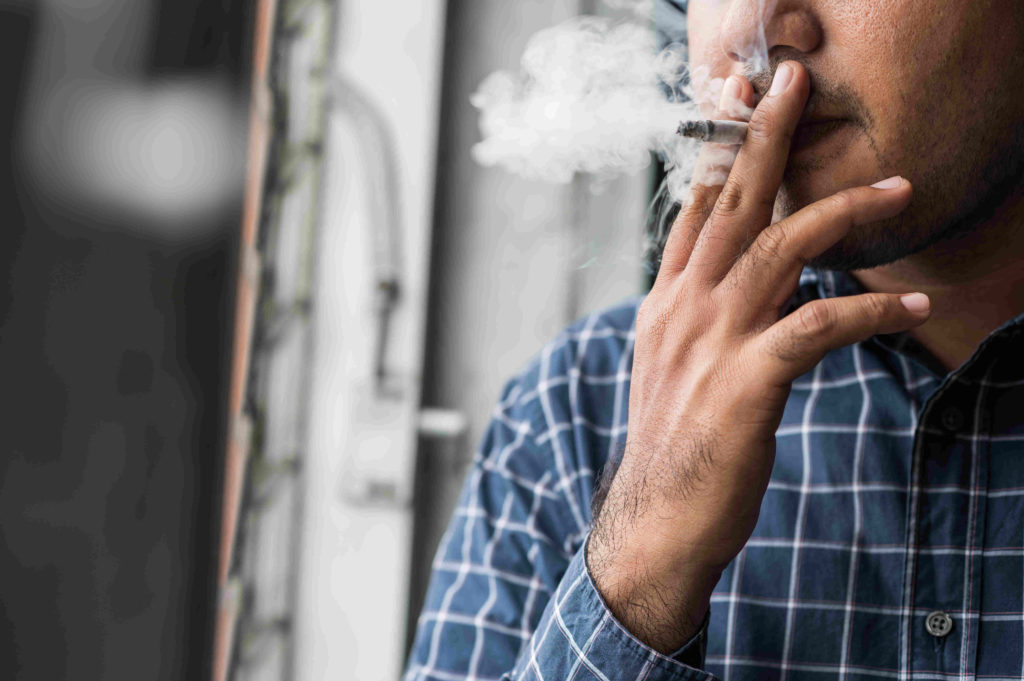Heavy smokers lose 2 to 3 times more teeth than non-smokers. This is the conclusion of a European study published in the Journal of Dental Research. Researchers examined the teeth of 23,000 smokers and non-smokers. On average, heavy smokers retained between 3 and 5 fewer teeth than non-smokers. This is because tobacco weakens the tissues that hold teeth in their sockets.
The impact of tobacco on oral health
Everyone knows that tobacco, in all its forms, is harmful to health and can lead to serious problems such as cancer, lung disease and heart disease. Visit effects of smoking on the mouth and teeth are also numerous. The longer you smoke, the greater the risks and symptoms.
- Stains or discoloration on teeth
- Persistent bad breath
- Plaque and tartar build-up
- Dental caries
- Decreased saliva production leading to dry mouth
- Periodontal disease affecting gums and bone
- Jaw bone loss
- Impaired sense of taste and smell
- Tooth mobility leading to tooth loss
- Ulcerations in the oral cavity
- Hairy, colorful tongue
- Faster healing after oral surgery or injury
- Reduced chances of success for certain treatments
- Cancers of the mouth, tongue, lips and throat
The risk of tooth loss due to smoking
The study of Journal of Dental Research demonstrates the impact of tobacco on the longevity of teeth. Teeth are highly exposed, since they are in direct contact with cigarettes. On average, heavy smokers (those who smoke 15 or more cigarettes a day) are two to three times more likely to lose their teeth than non-smokers.
Professor Thomas Dietrich, lead author of the study, explains: "When we lose teeth, it's often because of cavities or chronic periodontitis (gum disease). We know that periodontitis is a major risk for smokers, because cigarettes physically and chemically attack the gums. So it's logical that the more they smoke, the more teeth they lose".
The heat and particles released by cigarettes physically and chemically attack the gums. This leads to constant inflammation, reducing the vascularity of gum tissue and making it more vulnerable to attack by the bacteria present in tartar and plaque.
Eventually, smokers develop periodontitis. This pathology causes the destruction of the bone surrounding the tooth root and the ligaments holding it in its socket. If left unchecked, the tooth will loosen and fall out.
The progression of periodontitis can be halted by surgical intervention. However, the non-negotiable condition is that the patient must stop smoking, at least temporarily, to allow healing to take place.
Study conclusions on tooth loss
An adult normally has 32 teeth. This European study provides the following information.
Men's category:
- Before age 50: a man who has never smoked retains an average of 28 teeth, compared with 25 for a heavy smoker.
- After the age of 60, the difference becomes more pronounced, with 22 teeth retained by non-smoking men, compared with just 7 by heavy smokers.
For women, the gap is a little narrower:
- Before age 50: a woman who has never smoked retains an average of 27 teeth, compared with 25 for a heavy smoker.
- After age 60: 18 retained teeth in non-smokers versus 11 in smokers.
When weighted by other factors that can affect dental health, a heavy smoker's risk of tooth loss is multiplied by 3.6 compared to a non-smoker, and by 2.5 for a female smoker.
This assessment is based on the analysis of medical data from over 23,000 Germans aged between 20 and 70, followed for eight years.
The benefits of quitting smoking
Here's some good news for smokers: quitting smoking reduces the risk of tooth loosening fairly quickly. The same goes for all the other risks associated with smoking. So it's never too late to say goodbye to cigarettes.
If you smoke, look out for any sore spots in the mouth or throat that don't heal within two weeks. The appearance of white patches, hard balls, sunken or bulging lesions on the tongue, inside the cheeks or gums should be carefully monitored. Similarly, if you have difficulty swallowing, see your doctor.

